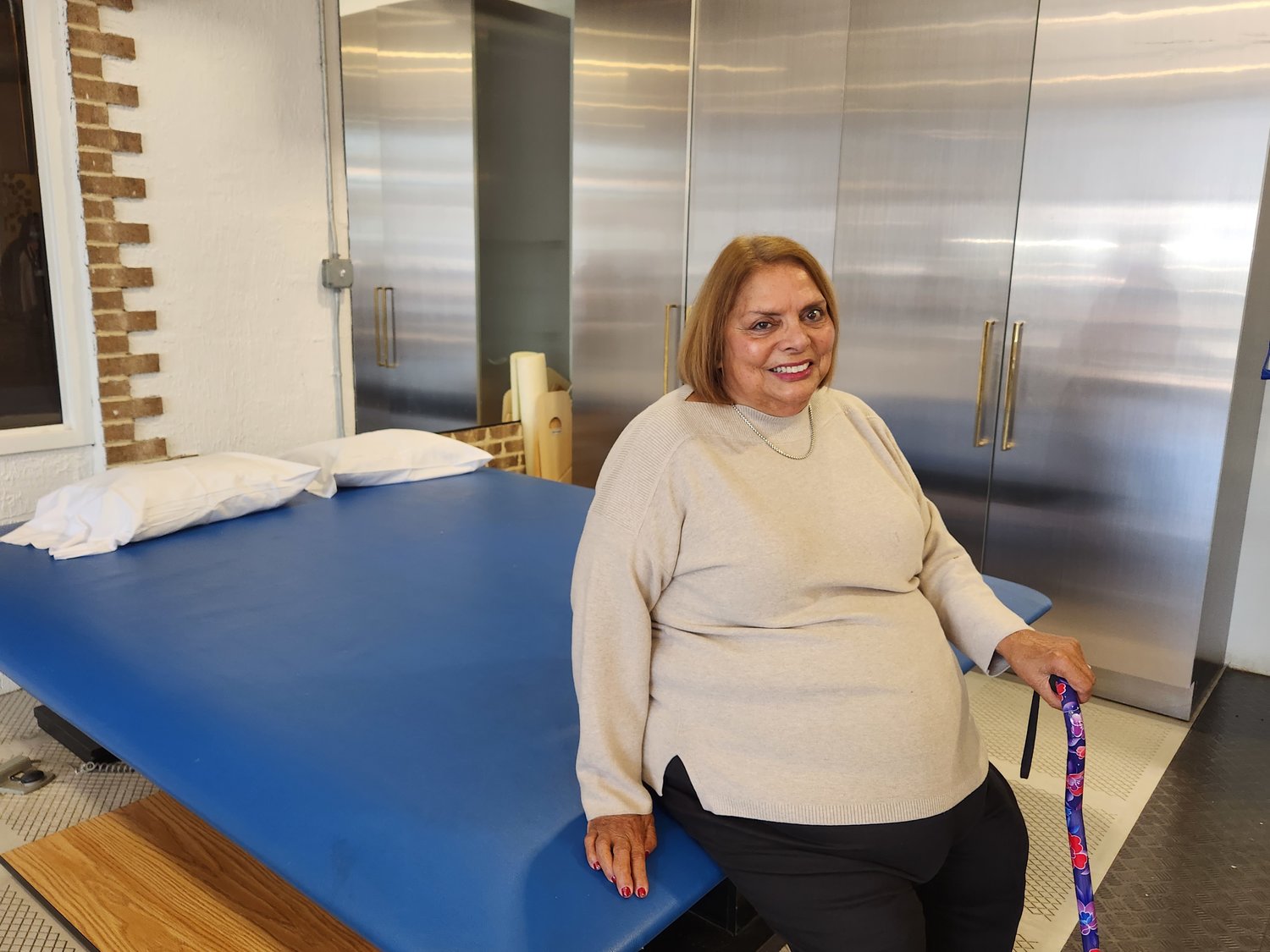Emerge Rehabilitation receives special three-year certification
When Linda Dragunat felt dizzy two days into her Florida vacation in February 2019, she went to a hospital, unsure of what was making her feel ill. That day, she lapsed into a coma that lasted six weeks.
Dragunat has Emerge Rehabilitation & Nursing, in Glen Cove, to thank for her recovery, Dragunat found out that she had suffered septic shock, but doctors couldn’t pinpoint exactly where her infection started, and concluded that it was the result of a microscopic cut somewhere on her body. That small cut was enough for two abscesses to appear on her spine, leaving her paralyzed from the neck down.
Luckily for Dragunat, her cognitive abilities weren’t impaired. Brain dysfunction is a frequent and severe complication of septic shock, and occurs in up to 60 percent of patients. It’s associated with increased mortality and long-term cognitive impairment. An estimated 10 million Americans are affected by stroke and traumatic brain injury, the second most prevalent injury and disability in the United States.
“The only thing I could move was my head. I could talk, but that was it,” Dragunat said.
She remained in Florida until doctors could safely remove her tracheotomy tube
to let her take a private helicopter back to New York. From there, Dragunat went to Burke Rehabilitation Hospital for evaluation but was told that the likelihood of her ever walking again was slim.
Despite the lack of confidence from the rehabilitation center, she was determined to stay on the path to recovery. From there, Dragunat went to Emerge Rehabilitation & Nursing in Glen Cove, the only rehabilitation center that would accept her for treatment. She received treatment from June 1, 2019 to Nov. 23, 2019, and now walks with a cane. She is living a more independent life and remains thankful that Emerge accepted her.
“It was the best decision my husband and I made,” Dragunat said. “I can walk again, and there’s no way to describe how that feels.”
Dragunat is one of the lucky few who defeated the odds. According to the World Health Organization, some type of neurological disease affects more than one billion people globally, and nearly 7 million people die every year as the result of a neurological disorder.
Since opening in 2018, Emerge has cared for patients like Dragunat discharged from hospitals, but aren’t ready to live at home. In January, Emerge become the first sub-acute rehabilitation center to be awarded awarded a three-year certification by the Commission on Accreditation of Rehabilitation Facilities for its neurological rehabilitation program.
CARF issued the accreditation to Lisa Foundas, clinical program manager of neurological services and Wendell Miller, the administrative program manager of neurological services who directly treated Dragunat.
“She and I would fight every day because I was determined to get her to move.” Miller said. “Yet she was also determined to fight, all she wanted to do was to go to Aruba.”
The center’s goal is to restore a braininjured individual to the optimum level of physical, cognitive, and behavioral functioning. Patients are often treated for strokes, hip replacements, traumatic brain injuries and other similar ailments. Patients who receive treatment for neurological damage typically receive 45 minutes of treatment but Emerge offers treatment for three hours per day.
“There’s such a need for traumatic brain injury, neurological diagnosis, because a lot of times [patients] go into the acute or sub-acute care hospitals and wonder where they go next,” Miller explained. “We want to be that that facility where we take our patients and families and support them to get them home.”
CARF have streamlined the process of vetting organizations to ensure their credibility.
A service provider begins the accreditation process with an internal examination of its programs and business practices. Then a team of expert practitioners selected by CARF conducts an on-site survey where the provider must demonstrate it conforms to a series of rigorous and internationally recognized CARF standards. The application process took two years.
“There was always a stigma for years about sub-acute rehabs, that you’re not always getting the best of care,” Foundas said. “But this CARF accreditation proves that we do, as sub-acute, have what it takes"







